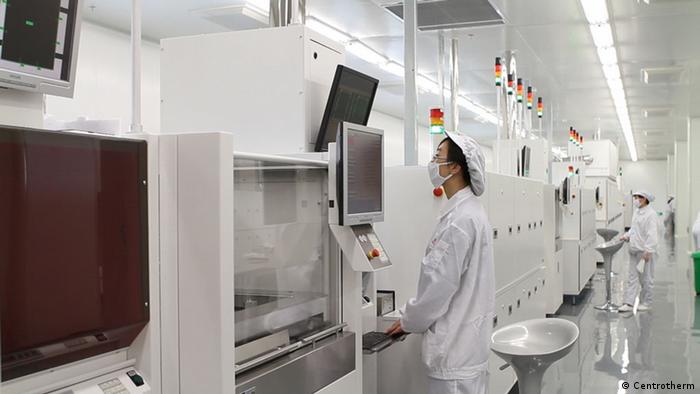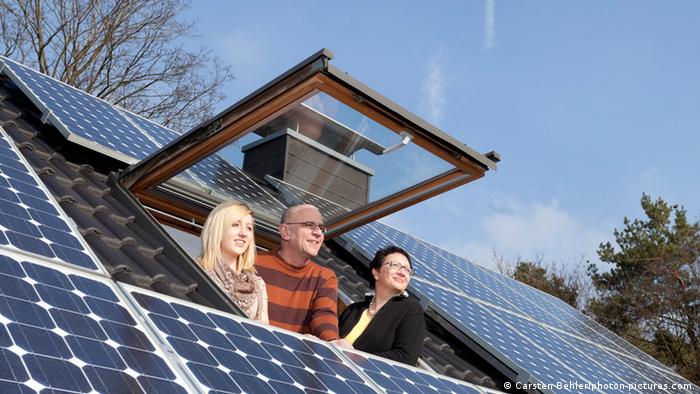Experts are predicting a global solar power boom. Germany could profit from this development and is working to build modern factories for solar modules.
More than 6 percent of Germany's energy needs are covered by home-grown solar power. That is a larger percentage than anywhere else in the world. The German solar industry employs about 100,000 people. They work in factories that produce solar panels and power inverters, in solar research labs and for installation companies. German firms are in demand overseas, where they are building new factories for solar panels and solar technology.
But solar panel manufacturers in Germany are under pressure from global competitors. Some first-generation factories, unable to survive the price wars, have gone bankrupt.
But according to Eicke Weber, head of the Fraunhofer Institute for Solar Energy Systems in Freiburg, the tough times are coming to an end. Starting next year, he expects Germany to experience a boom in its solar industry. "There will be great demand for the construction of new solar panel factories in rapidly growing markets," he said in an interview with DW.
 Germany will have to work hard to keep pace with competitors in Asia
Germany will have to work hard to keep pace with competitors in Asia
Dynamic market, low prices
Germany is set benefit as solar energy costs drop. Five years ago, power from solar panels in Germany cost between 40 euro cents ($0.50) and 50 euro cents per kilowatt hour, and about 30 euro cents in regions with more sunshine. Today, solar energy costs less than half that amount. Southern Europe produces solar power for less than 10 euro cents.
Solar energy cheaper than coal
According to predictions by leading experts, prices for producing solar power will continue to decrease. "One can safely assume costs for solar energy will drop by one third until 2020," said Philippe Welter, analyst and editor of the magazine Photon, which focuses on solar issues.
According to this, prices for solar energy from small-scale plants in Germany could fall to eight euro cents. Energy produced by big-scale plants in South Europe to four to five euro cents. This would make solar energy even cheaper than coal.
 An increasing number households across Europe are turning to solar energy
An increasing number households across Europe are turning to solar energy
Solar energy would become especially lucrative for direct consumption. Today, German consumers pay about 25 euro cents per kilowatt hour to use power from the grid. That's about 10 euro cents more than they would pay for solar power from a new installation on their rooftop. If energy prices continue to rise like they have in the past, German households would be paying about 40 euro cents per kilowatt hour for power from the grid by 2025. According to Welter's calculations, it would be only 8 euro cents per kilowatt hour for solar power from a new installation.
The trend will be similar in other countries worldwide, says Christian Breyer, CEO of the Reiner Lemoine Institute in Berlin. By 2025, solar power will be cheaper than power from the grid in 90 percent of all countries.
Experts expect a strong increase in demand for solar panels because of cheap solar power. Researcher Weber is convinced that sales of solar modules will increase tenfold by 2025.
Germany could profit from this boom
In order for Germany to economically profit from this trend in the best way possible, some rework needs to be done. According to Weber, future solar tech factories need to be even more efficient and bigger. He and other experts from the European solar industry are working on a consortium to build a prototype of a new module factory in Germany or in Europe. This ideal module factory could act as a reference for modern solar cell production.
Comments